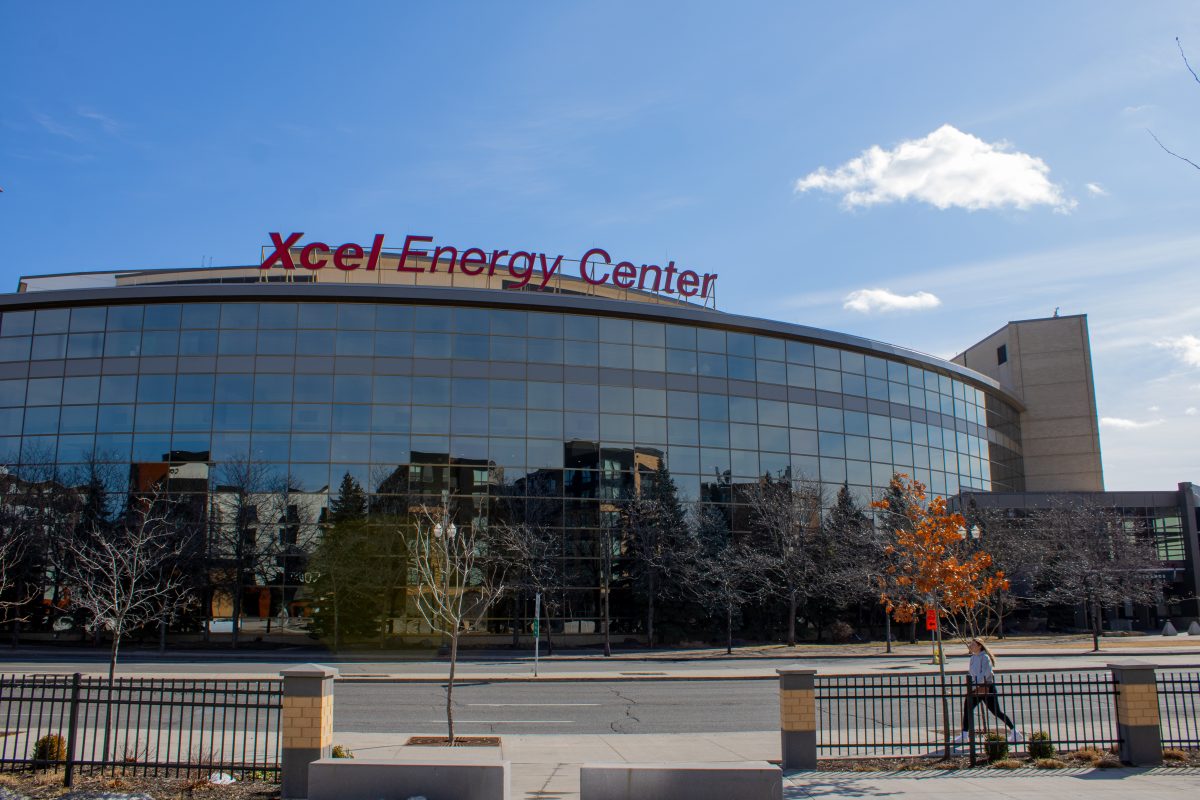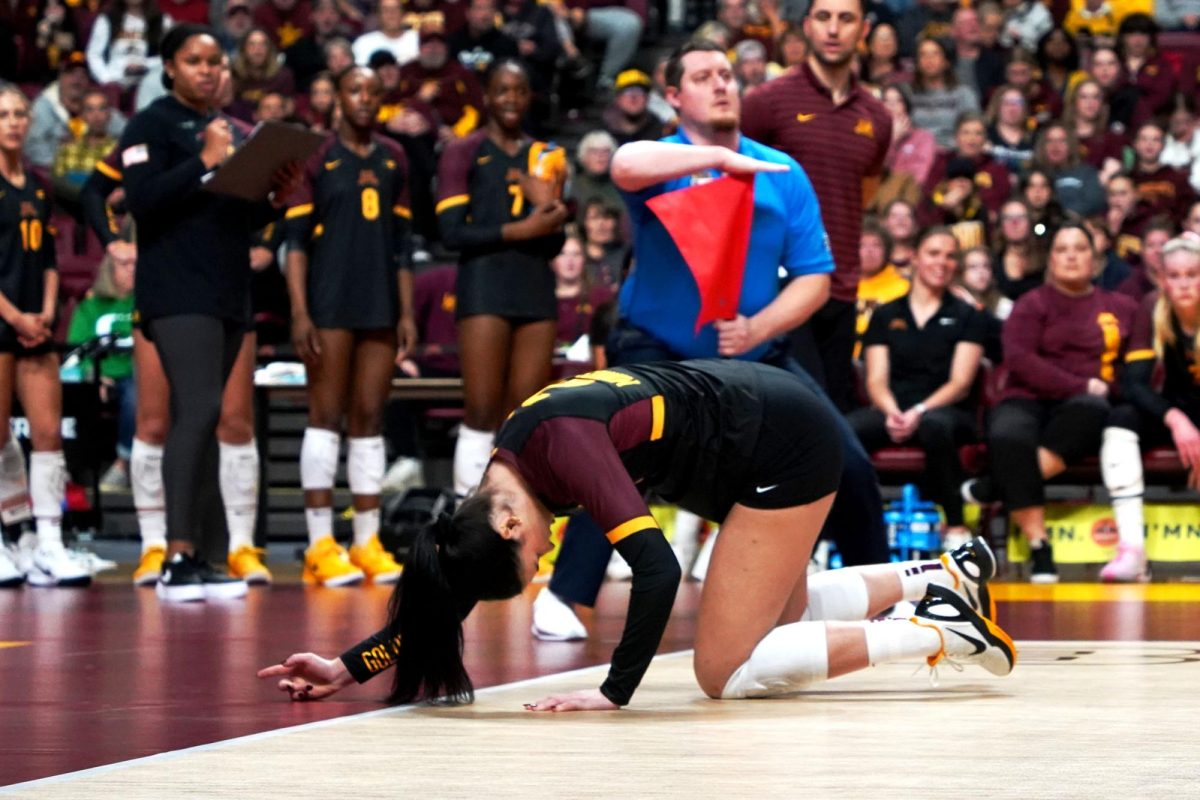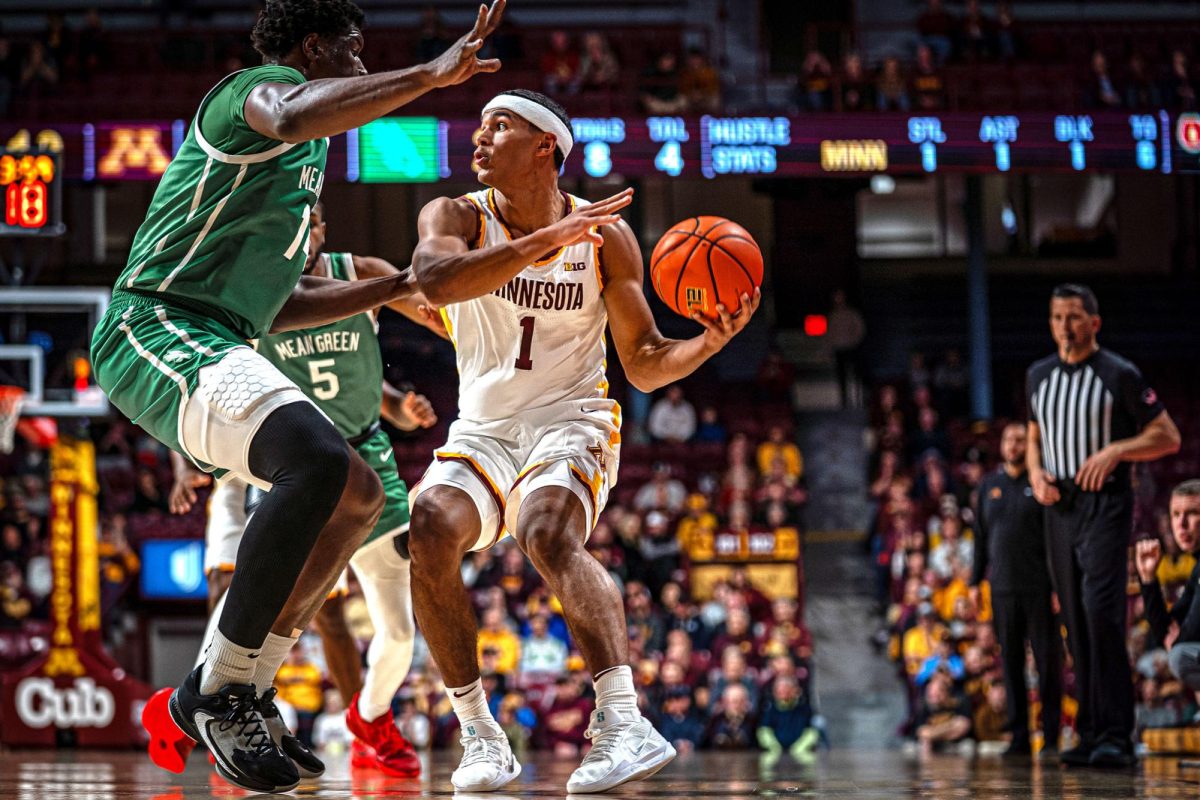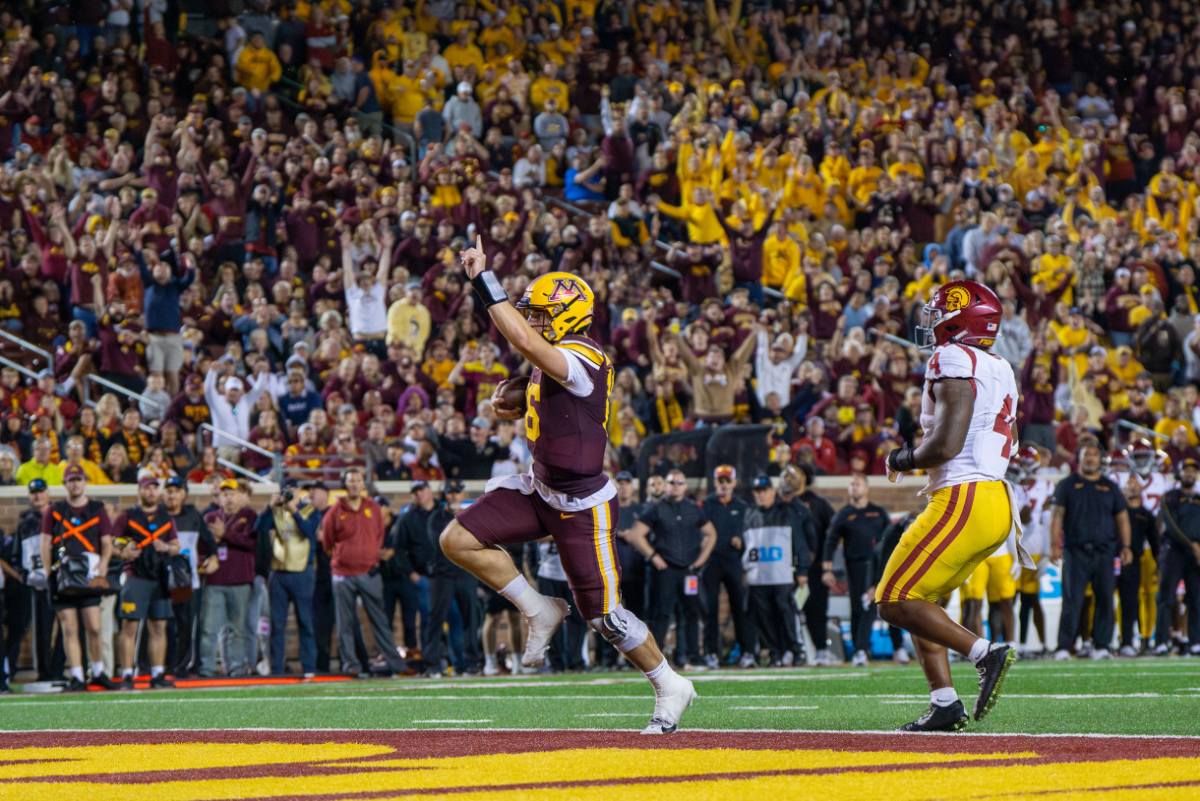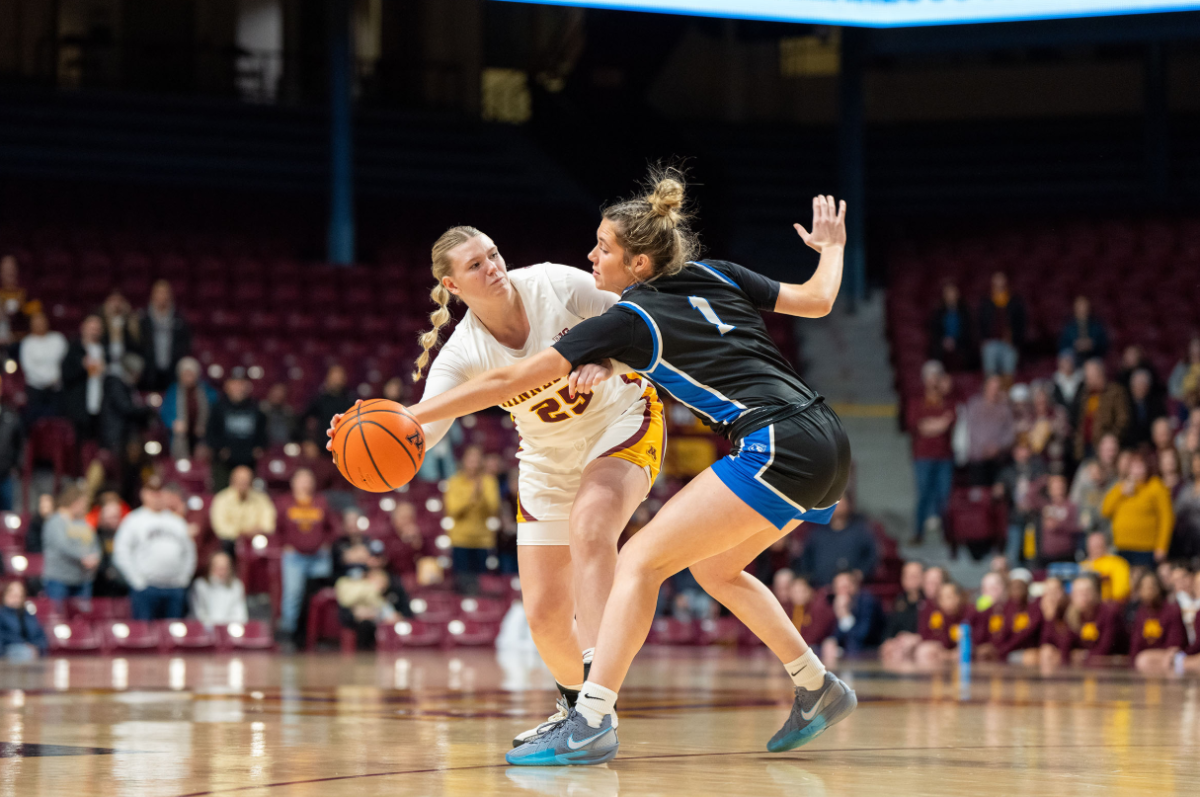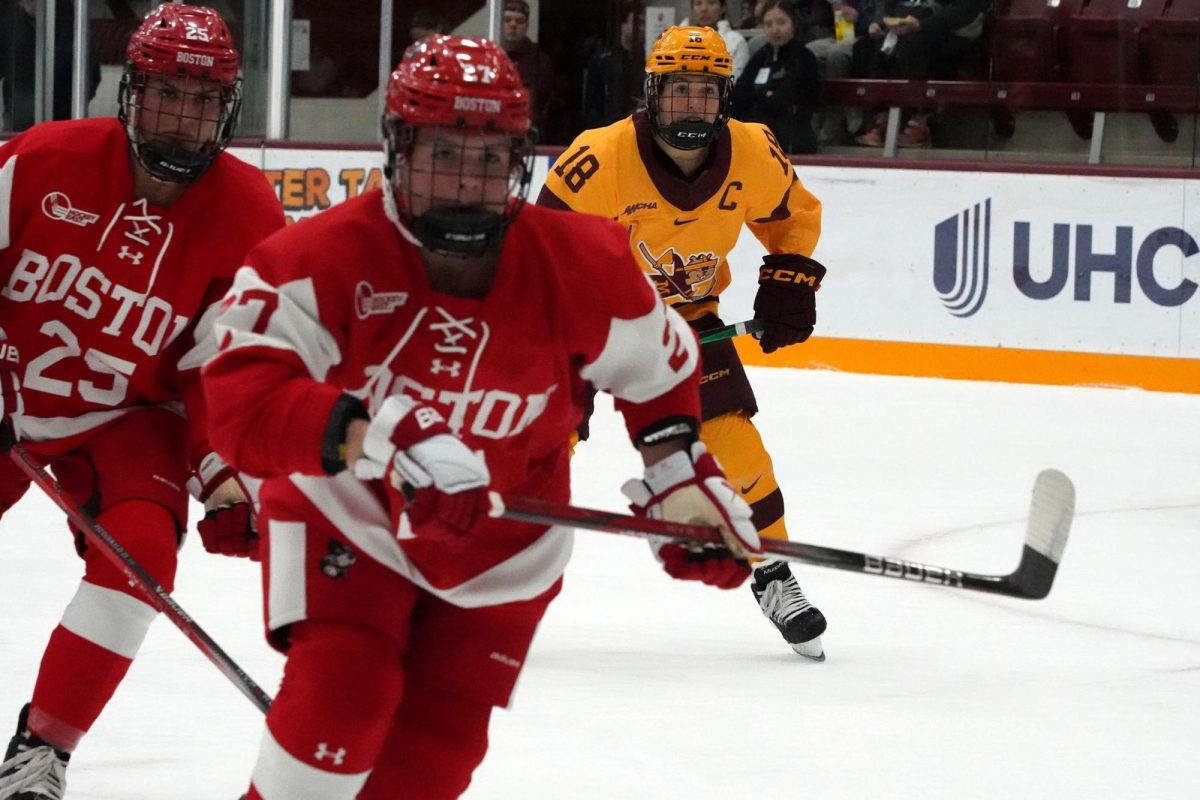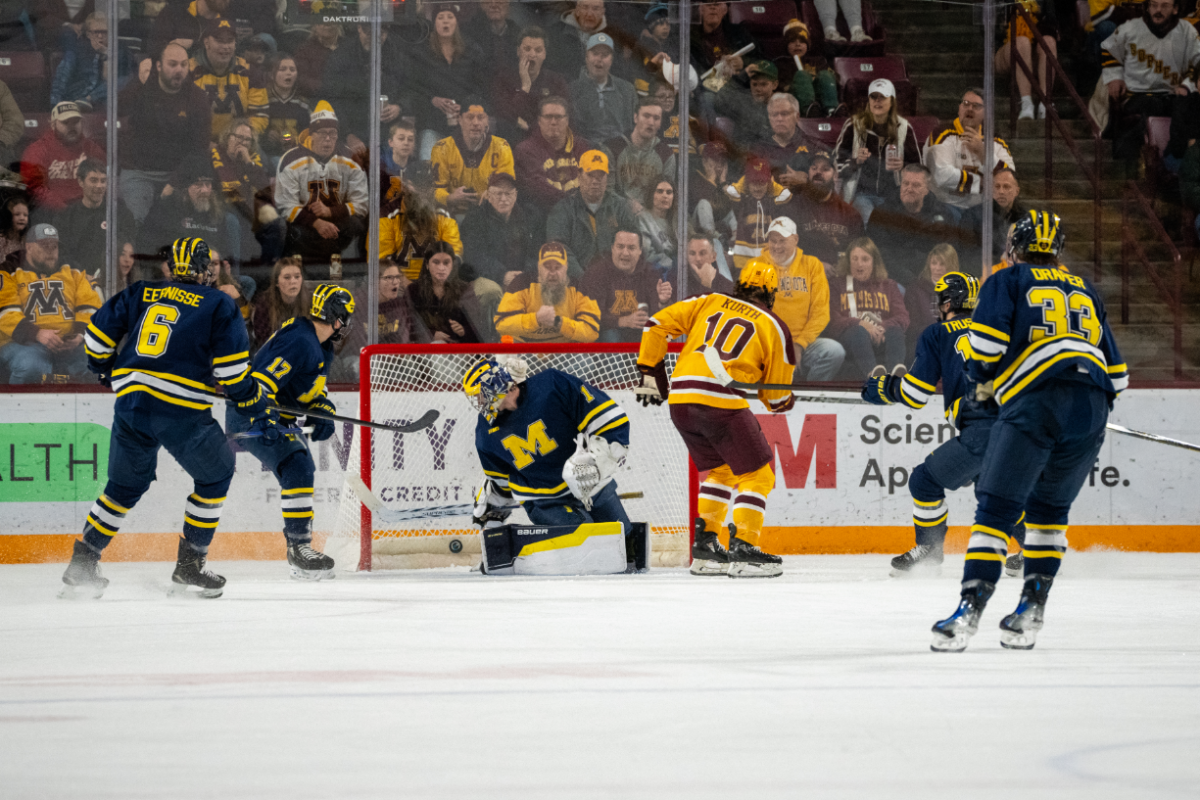The Twin Cities will be a hotbed for high-level sports from the Big Ten men’s and women’s basketball tournaments in March to the International Ice Hockey Federation World’s Junior’s championship in 2026.
The events are expected to bring thousands of tourists and an economic boost to the cities’ local businesses. The Big Ten announced on Friday the Minneapolis-hosted Big Ten women’s basketball tournament will be sold out for the first time in its history.
From now until the World Junior’s championship, Minneapolis will host the Team USA Gymnastics Olympic Team Trials at the Target Center in June while St. Paul hosts the NCAA Frozen Four at the Xcel Energy Center in April.
The city worked hard towards hosting the Big Ten basketball tournaments and the U.S. Gymnastics events for multiple years, according to Minneapolis Mayor Jacob Frey.
Frey said hosting these national, televised sporting events is a “gigantic win” for the city, which will cultivate a positive image for Minneapolis.
“[With] the pan in and out shot of our beautiful skyline before and after commercials, people see what a beautiful city we have and that helps our brand and reputation,” Frey said. “It helps people want to come to Minneapolis more and come and visit.”
Sports are coming to town
The Gophers men’s and women’s basketball teams will skip the plane when it comes time for the tournament.
Gophers women’s basketball head coach Dawn Plitzuweit said the tournament in Minneapolis will only help build support for her team.
“As the community grows to support women’s basketball, well guess what we play,” Plitzuweit said. “[The tournament] helps us in building our foundation.”
Submitting a proposal to host a tournament is no small task. Assistant General Manager for Target Center Amy Rahja said she and her team submitted a pitch to the Big Ten advocating for why the conference should choose the Target Center.
“It’s a pretty big packet of information,” Rahja said. “[The submission] usually happens a few years in advance, so it gives you some planning time.”
The Big Ten men’s basketball tournament happens a week after the women’s tournament. Head coach for Gophers men’s basketball Ben Johnson said he has not thought about the tournament yet.
“We want to make that a good thing because we keep playing good basketball,” Johnson said.
Target Center and Xcel Center
For Target Center staff it is not unusual to host major sporting events. In the past, the facility hosted both the NCAA men’s and women’s Final Four.
Part of what makes Target Center a prime location is its internal operations when executing an event. Rahja said the planning ahead helps ensure a smooth process of moving athletes from their hotel to the arena.
Brigid Tuck, a senior economic impact analyst for the University of Minnesota Extension, said the number of high-level talent packed into one area for the next few years boosts the moods of city residents in what is called the “halo effect.”
“The people coming into your communities and coming into places they may never have come before can expose them to the positive aspects of your community,” Tuck said.
The sporting events not only provide a boost to the city’s image but a boost to the local economy as well, according to Frey.
Spending beyond the arenas
Given the touristic nature of athletic events, Frey said they will attract not only athletes themselves but their families, friends and fans, too, ensuring days-long stays of exploring — and spending — in the city.
“They’re gonna be around not just to watch the event, but to go out and have a drink, to get some food, to do some shopping, and they’re making a whole week out of it,” Frey said. “The economic impact is extraordinary.”
On an average night, a visitor to Minnesota typically spends between $140 and $150 per person, according to Tuck.
Tuck said there will be a “higher economic impact” from visitors in town for the sporting events given their frequent use of hotels and restaurants.
“You look at some of these events that are going to draw thousands, if not hundreds of thousands, of people into Minneapolis and St. Paul,” Tuck said.
The restaurants neighboring Target Center and Xcel Energy Center have made large sporting events the bread and butter of their business.
Greg Awada, the co-owner of Zamboni’s on 7th Restaurant and Bar in St. Paul has spent 13 years on a block shared with the Xcel Energy Center. Awada said Zamboni’s is always ready to handle and appreciate the sports-heavy time of year.
“This time of year is when we go from red to black,” Awada said. “I’ve been on this block for 13 years and March is everything for us and it’s jam-packed. It’s draining, but once again, this is the month that makes us good.”
President and CEO of Minneapolis Downtown Council Adam Duininck said the increased economic activity of businesses “helps to drive safety.” Duininck, also a board member of the Downtown Improvement District, added the city took steps to ensure public safety on systems like the light rail, providing “a good fan experience.”
Duininck added part of the city’s goal is to promote local vendors, businesses and entrepreneurs so visitors get a feel for everything Minneapolis has to offer.
“We don’t want people just to come into town and go to a game and go home, we want them to come stay in a hotel or shop at a retail outlet or explore downtown,” Duininck said.
Expecting a boost in sports, tourism and economic activity, Frey said hosting the high-level sporting events is a chance to showcase the quality and excellence of the city.
“This is one more example that will show the rest of the country that Minneapolis is a place where you go for both entertainment for a large-scale event and you know that we’re going to do it well,” Frey said.



